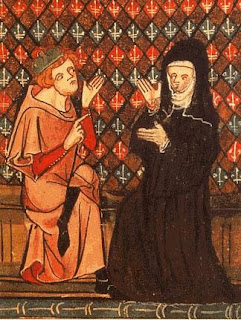Questions for Week Two: Karen Armstrong Book Study
To Read: A History of God, Chapters 3 & 4
In these chapters, we read, not only about the God of Christianity, we explore differences within Christianity.
· Was Jesus the Son of God?
· Did God create the Universe from nothing?
· Can God suffer?
· What is the nature of dunamis,power?
On Sunday, July 1, some of us read a passage from The Wisdom of Solomon, a Jewish text composed under the influence of Greek Philosophy. As you read it, where do you find the resonances from both as Armstrong describes them?
Wisdom of Solomon 1:13-15; 2:23-24
God did not make death,
And he does not delight in the death of the living.
For he created all things so that they might exist;
the generative forces of the world are wholesome,
and there is no destructive poison in them,
and the dominion of Hades is not on earth.
For righteousness is immortal.
And he does not delight in the death of the living.
For he created all things so that they might exist;
the generative forces of the world are wholesome,
and there is no destructive poison in them,
and the dominion of Hades is not on earth.
For righteousness is immortal.
God created us for incorruption,
and made us in the image of his own eternity,
but through the devil’s envy death entered the world,
and those who belong to his company experience it.
and made us in the image of his own eternity,
but through the devil’s envy death entered the world,
and those who belong to his company experience it.
· A Question for Reflection: Is Trinity a useful image of God for you? Why or why not?
· The Eastern Church tried to keep God from becoming too rational or explainable. Why is this important? Armstrong writes:
Basil expressed the [contrast between philosophy, capable of proof, and mythology, eluding proof] in a Christian sense when he distinguished between dogma and kerygma. Both kinds of Christian teaching were essential to religion. Kerygma was the public teaching of the Church, based on the scriptures. Dogma, however, represented the deeper meaning of biblical truth, which could only be apprehended through religious experience and expressed in symbolic form. Besides the clear message of the Gospels, a secret or esoteric tradition had been handed down “in a mystery” from the apostles; this had been a “private and secret teaching,” (Compare to Jewish Mishnah: Oral Torah) p.114
· What is the real problem with Arius and Arianism?
· Compare the Cappadocian Fathers’ description of Trinity with that of St. Augustine.
QUESTIONS RAISED LAST WEEK
From Betsy:
· If “man” created God, then how do we trust that the God we feel close to in our hearts is not just a “God” that makes us feel good, provides us with what we need, and keeps us comfortable? What about a God that asks us to be uncomfortable? Moves us out of our comfort zone? Pushes us to be more than we think we can be?
If you don’t get Richard Rohr’s meditations, click here to see how he addresses part of Betsy’s question.
From Everil: Where do the archetypes fit?
St. Augustine appeals to this when he speculates: “We yearn toward our archetype–the original pattern on which we were formed.”
Can we know this original pattern? Armstrong writes: we must recall that the Greeks believed that the mirror image was real, formed when the light from the eye of the beholder mingled with the light beaming from the object and reflected on the surface of the glass. Augustine believed that the trinity in the mind was also a reflection that included the presence of God and was directed toward him. But how do we get beyond this image, reflected as in a glass darkly, to God himself? (p.122)
Jung calls this Projection. We unconsciously project our own thoughts, feelings and experiences on the world around us. He writes:


Comments
Post a Comment